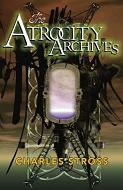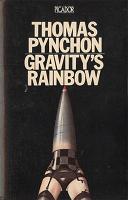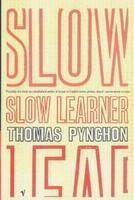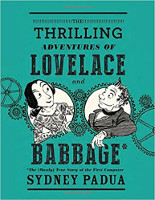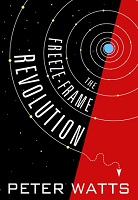 What do you do when a book you've been asking, wishing, begging for finally arrives, several years later than you'd have liked it to? When several Christmases plus your Birthday have come in one go? You complain about it, of course. So, to be clear, this is no way long enough. We want more, and we want it now!
What do you do when a book you've been asking, wishing, begging for finally arrives, several years later than you'd have liked it to? When several Christmases plus your Birthday have come in one go? You complain about it, of course. So, to be clear, this is no way long enough. We want more, and we want it now!
Although one notices that the credits contain a Series Editor (Jacob Weisman). There is hope yet...
Peter Watts is an award-winning Canadian hard SF author, a lapsed marine biologist, a survivor of necrotising fasciitis, and a convicted felon (just ask the TSA) who will not enter the US again. I guess there are worse fates...
He now has 8 published Novels (one of them published in two volumes for ‘commercial considerations’) and 2 collections of short stories under his belt; he has been labelled a “sociological futurist Lovecraft” in a discussion on Charlie Stross’ blog - a quip which predates the story at hand, but is nevertheless fully appropriate, too.
The Freeze-Frame Revolution is set in his Sunflowers universe, ie the same universe in which the Hugo-Award-winning Novelette The Island (as well as a raft of other stories and snippets published over the last few years) is set in, and follows the same wormhole-building ship/asteroid and its dysfunctional crew and AI.
Said asteroid with its singularity drive is known as Eriphora (or Eri for short), with its 30k crew – known as 'spores (I presume from Diaspora), grouped into tribes - who spend most of their time in some kind of cryo-sleep.
They have developed strange religions, clans, habits and fashions, and art forms over the course of the millennia. Appreciation of new kinds of music. Rock painting in the caves and tunnels. Worship of Eriphora herself. I can just see the humanity coming through, even in these crew members designed for such a mission.
But sometimes things get too complicated, and then they are needed by the AI, which is affectionately (well, not really. Thus the revolution business...) known as the Chimp, for being both much smarter and quicker than the crew, but also not as intelligent. The way Sunday Ahzmundin, the protagonist through whose eyes we see the events, puts it is that he's incredibly fast at counting on his fingers. And he's got the millennia in-between builds to go through all the scenarios.
Ah, the builds. You see, Eriphora is a build ship. Specifically, they build and connect wormhole gates, to thread the whole universe together and facilitate humanity's (or whatever it has evolved into or has replaced it meanwhile) spread/travel across the universe.
Eri is (or was) not the only ship doing this, but our protagonists have massively exceeded expectations, and are still going strong – some 60 million years into the mission (which started in the 22nd century. I love the optimism in terms of being able to pull something like this together by then!).
And, despite being way past mission expiration, there is no end to the mission, really – it is, as one crew members puts it, “a one-way trip to Heat Death”. Just in case nothing fails before, of course.
There are ruminations on archives, stacked archives, and how to safeguard against the depredations of such a mission across deep time. I mean, we cannot keep our own data available for more than the odd decade, so a strategy to avoid and correct bit rot across such time scales, and in a much more aggressive environment are, to put it mildly, challenging.
We had a legend, we denizens of Eriphora, of a cavern – deep aft, almost as far back as the launch thrusters themselves – filled with diamonds. Not just ordinary diamonds, either: the uncut, hexagonal shit. Lonsdaleite. The toughest solid in the whole damn solar system – back whenw e shipped out, at least – and laser-readable to boot.
Build your backups out of anything less and you might as well be carving them from butter.
Nothing's immortal on a road trip of a billion years. The universe runs down in stop-motion around you, your backups' backups' backups need backups. Not even the error-correcting replication strategies cadged from biology can keep mutations at bay forever. It was true for us meatsicles cycling through mayfly moments every thousand years; it was just as true for the hardware. It was so obvious I never even thought about it. By the time I did, the Chimp was on his eighty-third reincarnation.
The story itself, in contrast to the shorter pieces of fiction which preceded it and which drew on the mission, and the relationships within the crew and their taskmaster, is focused on 'How do you rebel, cooperate, coordinate against a near-omniscient, near-omnipotent overlord?' Who is awake across the millennia whilst you sleep in suspension, who controls when you are being thawed out again, and who can re-run every record from every viewpoint, run every scenario in all it variants? Yes, the Chimp is stupid, but ever so fast, and with so much time on its hands, plus some tricks up its sleeves which the original developers provided it with.
Especially that part, the revolution under a near-panopticon, really raised comparisons with Charles Stross' Glasshouse for me.
As mentioned before, we get to see everything from Sunday's 1st person viewpoint – full story exhibition, her inner life, plus information dumps with explanations aimed at the reader (thanks, appreciated).
Time is counted decimally. In kilo/mega/peta/tera-seconds. Of course it makes sense, even if your brain keeps bleating 'but how much is that in real money' like some kind of imperial martyr.
There is a lot of foreshadowing, especially (but not solely) at the chapter ends – not very concrete, not very spoiler-ish, but more in a vaguebooking kind of way.
Not all the short stories and fiblets previously published in this universe have been worked into the story (no reason, really), but I don't see why they could not be included, this somehow would have called for a collection with all the other materials, too? Or is this something to do with said series? Othwerwise this would be a bit of a lost opportunity IMHO.
Worth reading? Yup. Worth waiting for? Indeed. Do I want more? Absolutely.
Title: The Freeze-Frame Revolution
Author: Peter Watts
Series: Sunflowers
Series Number: not so sure
Reviewer: Markus
Reviewer URL: http://thierstein.net
Publisher: Tachyon
Publisher URL: http://www.tachyonpublications.com
Publication Date: June 2018
Review Date: 180716
ISBN: 9781616960100
Pages: 145
Format: ePub
Topic: Space Opera
Topic: Sociology
Thanks to the publisher for the review copy.



